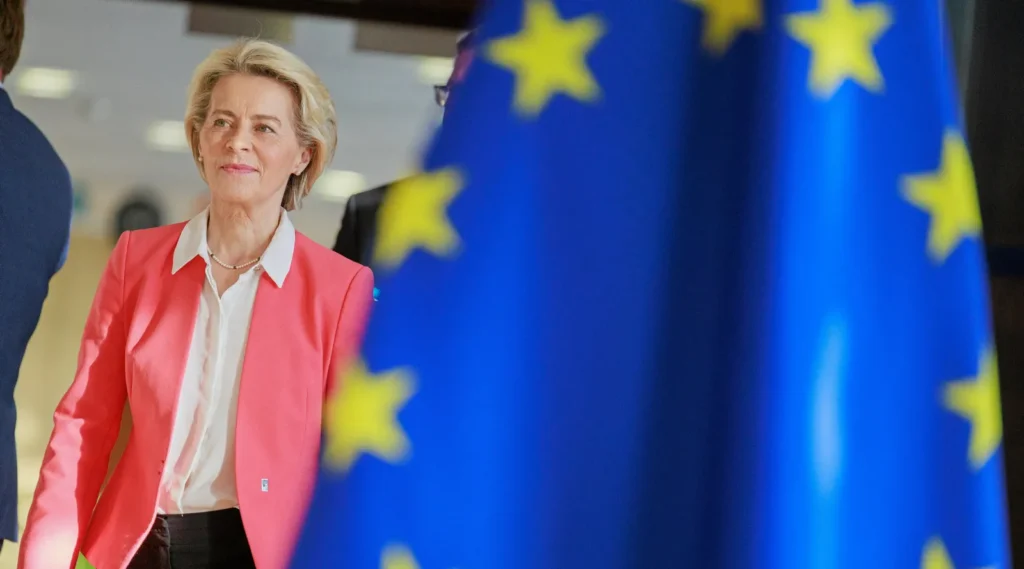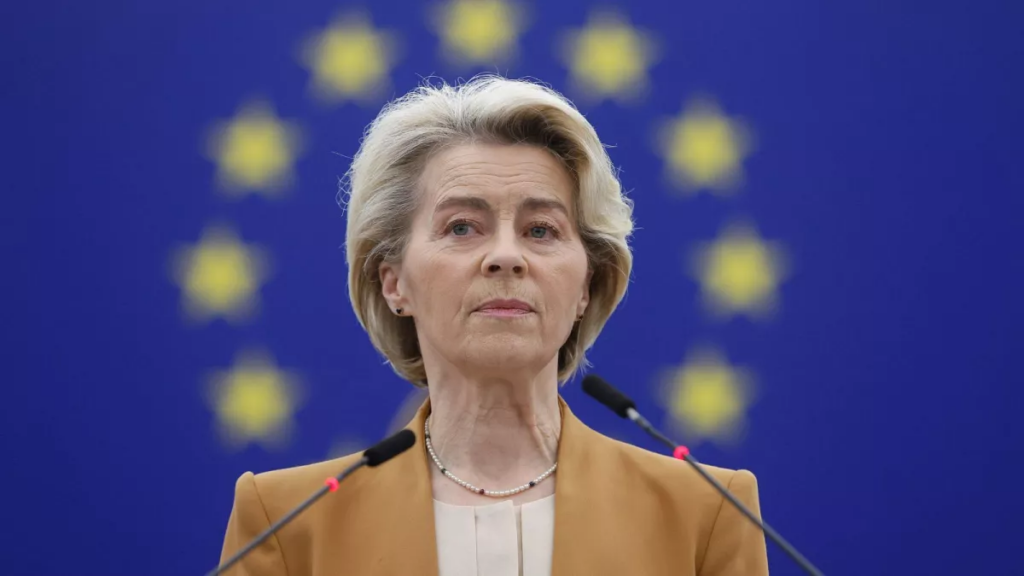EU Launches €100 Billion Clean Industrial Deal for Decarbonization and Clean Tech Growth

- €100 billion for clean manufacturing – The EU will mobilize funding to accelerate industrial decarbonization and strengthen clean tech production.
- Lower energy costs for industries – A new Action Plan on Affordable Energy aims to reduce electricity bills, expand renewable energy, and improve grid infrastructure.
- Circular economy and resource security – New initiatives will promote material reuse, secure critical raw materials, and enhance industrial sustainability.
The European Commission has launched the Clean Industrial Deal, a sweeping business plan aimed at reinforcing industrial competitiveness, reducing emissions, and securing Europe’s clean energy future. The €100 billion initiative will support manufacturing, lower energy costs, and boost circularity, positioning Europe as a global leader in sustainable industrial production.
“Europe is not only a continent of industrial innovation but also a continent of industrial production. However, the demand for clean products has slowed down, and some investments have moved to other regions. The Clean Industrial Deal is to cut the ties that still hold our companies back and make a clear business case for Europe,” said European Commission President Ursula von der Leyen.

Securing Energy for Industry
The plan prioritizes reducing energy costs, with a new Action Plan on Affordable Energy that:
- Expands clean energy infrastructure and accelerates electrification.
- Improves grid interconnections to ensure stable energy supply.
- Lowers industrial energy bills by reducing dependence on imported fossil fuels.
To drive industrial decarbonization, the Industrial Decarbonisation Accelerator Act will introduce a voluntary carbon intensity label for products such as steel in 2025, followed by cement. This aims to help manufacturers capture a premium for clean production.
Funding the Clean Transition
The Clean Industrial Deal will mobilize over €100 billion through various financial mechanisms, including:
- A new Clean Industrial Deal State Aid Framework to simplify and speed up approvals for state-supported projects.
- A €100 billion Industrial Decarbonization Bank, leveraging the EU Innovation Fund and Emissions Trading System (ETS) revenues.
- InvestEU regulation updates to increase risk-bearing capacity and attract €50 billion in private investment.
- European Investment Bank (EIB) initiatives, such as a Grids Manufacturing Package to support the renewable energy supply chain.
“The Commission will propose an Industrial Decarbonisation Bank, aiming for €100 billion in funding, based on available funds in the Innovation Fund, additional revenues resulting from parts of the ETS as well as the revision of InvestEU,” the Commission stated.
RELATED ARTICLE: Arcadia Acquires Renewable Energy Procurement Leader RPD Energy to Expand Clean Energy Solutions
Circularity and Critical Raw Materials
To reduce reliance on external suppliers and strengthen the circular economy, the EU will:
- Launch an EU Critical Raw Material Centre to jointly purchase and stockpile essential materials.
- Establish a Circular Economy Act in 2026, aiming to increase the use of recycled materials to 24% by 2030.
- Support industrial reuse and recycling efforts, minimizing waste and cutting production costs.
A Competitive Europe in Global Markets
The Clean Industrial Deal will also protect EU industries from unfair global competition through:
- Clean Trade and Investment Partnerships (CTIPs) to secure supply chains and foster international cooperation.
- A simplified and expanded Carbon Border Adjustment Mechanism (CBAM) to prevent carbon leakage and maintain competitiveness.
- Stronger trade defense measures to counter overproduction in non-EU markets that threatens European industries.
“We need to maintain momentum to implement the Global Biodiversity Framework. It matters more than ever in the current geopolitical climate. The EU will work hard to find solutions and continue implementing this historic agreement until 2030 and beyond,” said Commissioner Jessika Roswall.

Q&A: What the Clean Industrial Deal Means for Business
Q: Why does the EU need the Clean Industrial Deal?
A: Europe must tackle three simultaneous challenges: high energy costs, industrial competitiveness, and dependency on critical raw materials. The Clean Industrial Deal positions decarbonization as an economic driver while securing supply chains.
Q: What does the Clean Industrial Deal aim to achieve?
A: It will lower energy costs, mobilize €100 billion for clean tech, and create a stronger market for green products. The plan also expands circular economy initiatives to improve resource efficiency and reduce reliance on external suppliers.
Q: Does this reduce the ambitions of the Green Deal?
A: No. The EU remains committed to reducing greenhouse gas emissions by 55% by 2030 and reaching net-zero by 2050. The Clean Industrial Deal reinforces regulatory certainty for businesses while streamlining some rules to prevent investment delays.
Q: How does it support businesses?
A: The Deal introduces:
- Lower energy prices through expanded renewables and grid interconnections.
- Faster state aid approvals for clean tech projects.
- Financial support from a new €100 billion Industrial Decarbonization Bank.
- Trade protection through a strengthened Carbon Border Adjustment Mechanism (CBAM).
Q: What are the main financial mechanisms?
A: The plan includes:
- A €100 billion Industrial Decarbonization Bank to fund clean manufacturing.
- €50 billion in private investment mobilization through InvestEU.
- A €1 billion EU pilot auction for industrial decarbonization projects in 2025.
Q: How will this address raw material shortages?
A: The EU will jointly purchase critical raw materials through a new EU Critical Raw Material Centre and enforce new recycling targets to reach 24% circular material use by 2030.
Q: What’s next for the Clean Industrial Deal?
A: The EU will release:
- An Automotive Industry Action Plan (March 2025)
- A Steel and Metals Action Plan (Spring 2025)
- A Circular Economy Act (2026) to boost reuse and recycling.
The Road Ahead
The Clean Industrial Deal represents a transformative shift in EU industrial policy, balancing economic growth with sustainability. With funding, regulatory support, and an emphasis on energy security, it aims to keep European industries competitive in the global clean economy.
For more details, read the full Clean Industrial Deal Communication.
Follow ESG News on LinkedIn










